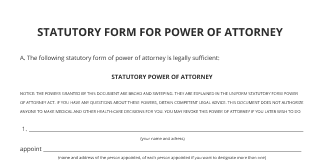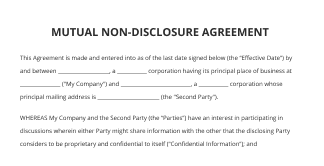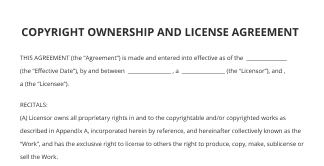Sign Short Medical History Made Easy
Improve your document workflow with airSlate SignNow
Flexible eSignature workflows
Instant visibility into document status
Simple and fast integration set up
Sign short medical history on any device
Comprehensive Audit Trail
Strict safety standards
See airSlate SignNow eSignatures in action
airSlate SignNow solutions for better efficiency
Our user reviews speak for themselves






Why choose airSlate SignNow
-
Free 7-day trial. Choose the plan you need and try it risk-free.
-
Honest pricing for full-featured plans. airSlate SignNow offers subscription plans with no overages or hidden fees at renewal.
-
Enterprise-grade security. airSlate SignNow helps you comply with global security standards.

Your step-by-step guide — sign short medical history
Adopting airSlate SignNow’s electronic signature any organization can increase signature workflows and sign online in real-time, supplying an improved experience to customers and workers. Use sign Short Medical History in a couple of easy steps. Our handheld mobile apps make operating on the run achievable, even while off-line! eSign contracts from anywhere in the world and complete deals in less time.
Keep to the walk-through instruction for using sign Short Medical History:
- Log in to your airSlate SignNow account.
- Find your needed form within your folders or import a new one.
- Open up the record and make edits using the Tools list.
- Drag & drop fillable areas, add text and eSign it.
- Include numerous signers by emails and set up the signing order.
- Choose which users will get an completed doc.
- Use Advanced Options to limit access to the template and set up an expiration date.
- Click on Save and Close when finished.
In addition, there are more extended features available for sign Short Medical History. Add users to your shared work enviroment, view teams, and monitor cooperation. Millions of people across the US and Europe concur that a system that brings people together in a single holistic digital location, is the thing that companies need to keep workflows working easily. The airSlate SignNow REST API enables you to integrate eSignatures into your app, internet site, CRM or cloud storage. Try out airSlate SignNow and get quicker, smoother and overall more efficient eSignature workflows!
How it works
airSlate SignNow features that users love
See exceptional results sign Short Medical History made easy
Get legally-binding signatures now!
FAQs
-
How do I write my medical history?
Step 1: Include the important details of your current problem. Step 2: Share your past medical history. Step 3: Include your social history. Step 4: Write out your questions and expectations. -
How do you get patient history?
Introduce yourself, identify your patient and gain consent to speak with them. ... Step 02 - Presenting Complaint (PC) ... Step 03 - History of Presenting Complaint (HPC) ... Step 04 - Past Medical History (PMH) ... Step 05 - Drug History (DH) ... Step 06 - Family History (FH) ... Step 07 - Social History (SH) -
What is a patient's medical history?
Medical history: 1. In clinical medicine, the patient's past and present which may contain relevant information bearing on their health past, present, and future. The medical history, being an account of all medical events and problems a person has experienced is an important tool in the management of the patient. -
What is history taking in medicine?
Most health encounters will result in some form of history being taken. Medical histories vary in their depth and focus. ... The method by which doctors gather information about a patient's past and present medical condition in order to make informed clinical decisions is called the history and physical (a.k.a. the H&P). -
How do I write a medical report?
The date on which the report was prepared; The name of the person to whom the report is directed; The full name, date of birth and hospital unit record number of the subject. ... Identification of the author: This should include the practitioner's full name, practising address, current employment and qualifications. -
What are the facets of history taking?
the airSlate SignNow attributes of a symptom, including location and radiation, intensity, quality, temporal sequence (onset, duration, frequency), alleviating factors, aggravating factors, setting, associated symptoms, functional impairment, and patient's interpretation of symptom. -
How do I organize my cancer signNowwork?
Keep good notes. ... Find a way to record and store your financial information. ... Have a plan to handle bills and payments. ... Ask for help. -
How far back do my medical records go?
They should keep adult records for at least three years and usually for seven. Most hospitals have records going back longer than seven years, especially if the person has been using services for a long time. The Data Protection Act enables you to ask to see any records which have information about you on them. -
What should be included in a medical history?
A personal medical history may include information about allergies, illnesses, surgeries, immunizations, and results of physical exams and tests. It may also include information about medicines taken and health habits, such as diet and exercise. -
How do I obtain my medical records?
To obtain access to your medical or health records from public health facilities, you will need to contact the relevant Local Health District. A fact sheet about accessing your medical or health records from public health facilities, such as NSW hospitals, is available from the NSW Information and Privacy Commission. -
How do you write a medical summary report?
Suggested clip SOAR Medical Summary Report Tutorial - YouTubeYouTubeStart of suggested clipEnd of suggested clip SOAR Medical Summary Report Tutorial - YouTube -
Can I get medical records from 30 years ago?
Printing from the electronic record now used by most hospitals is easy, Tegen says. "But say you were a pediatric patient 30 years ago \u2013 that information, if the hospital still has it, will either be on airSlate SignNow, in a storeroom someplace or it will be on microfilm." -
Why is it important to know a patient's medical history?
A family medical history can identify people with a higher-than-usual chance of having common disorders, such as heart disease, high blood pressure, stroke, certain cancers, and diabetes. ... Knowing one's family medical history allows a person to take steps to reduce his or her risk. -
What is the minimum length of time that a medical office must retain most patient medical records?
The new law effectively changes the length of time a provider must keep medical records of Medi-Cal patients. Currently, state law requires medical records of adults or emancipated minors to be retained for seven years; and for unemancipated minors, until the minor signNowes age 19, but no fewer than seven years.












































